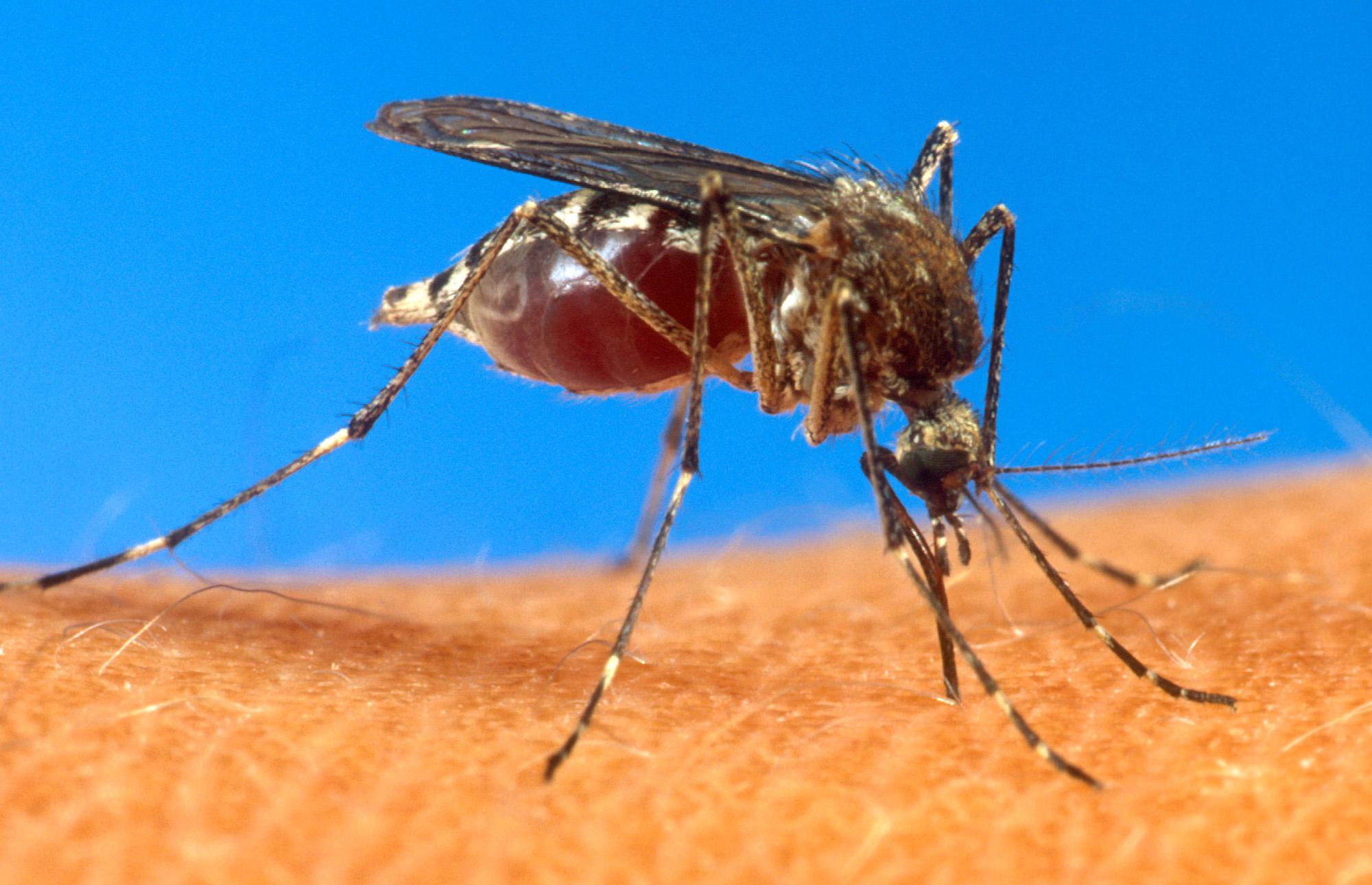FILE- In this undated file photo provided byt he USDA, an aedes aegypti mosquito is shown on human skin. Health officials in the Dominican Republic said this Tuesday April 29, 1014, that the mosquito-borne chikungunya virus has spread widely since making its first appearance in the country. According to the Centers for Disease Control the chikungunya virus is most often spread to people by Aedes aegypti and Aedes albopictus mosquitoes. These are the same mosquitoes that transmit dengue virus. They bite mostly during the daytime. (AP Photo/USDA, File) ORG XMIT: XLAT120
Q: I have mixed saliva and Adolph’s unseasoned meat tenderizer to immediately take the itch and swelling out of mosquito bites. Just smear the paste on the area around the bite.
I understand that the enzyme that the female mosquito injects in its bite to keep blood flowing is neutralized by the enzymes in the meat tenderizer. Apparently, that stops the itch reaction.
I have “skeeter syndrome” and am the choice victim of mosquitoes. This is the only thing that works.
I would like to know what I can take that would make me invisible to those critters!
A: Most people are familiar with the itch from mosquito bites. We first learned about meat tenderizer for insect stings from an article in JAMA (April 24, 1972). Subsequent research on the papaya enzyme in tenderizer has not confirmed usefulness against stings or bites.
People with “skeeter syndrome” (an actual medical term) have more intense reactions that last longer. There are few well-tested treatments for this exaggerated reaction.
To keep mosquitoes from biting, doctors usually recommend an effective insect repellent such as DEET or picaridin (Allergologie Select, Nov. 30, 2020).
Visitors to our website often recommend the B vitamin thiamine. Scientific research, however, has not shown that taking oral thiamine deters mosquitoes (Journal of the American Mosquito Control Association, June 2005). A review of studies on this topic concludes: “… in controlled experiments, thiamine does not appear to repel biting insects of any species, in humans or animals, at any dose, over any period of time, and in any formulation: topical, oral, subcutaneous, or transdermal” (Bulletin of Entomological Research, Feb. 24, 2022).
Q: I had the bottom of one foot covered with warts. When I mentioned this to my family doctor, he said he’d heard Tagamet could cure them. It took about two weeks, taking one a day, for the warts to disappear.
A: A small study in the journal Medical Sciences (June 2018) tested the value of the heartburn medicine cimetidine (Tagamet) in the treatment of recalcitrant warts. The children were heart transplant patients, so their immune systems were suppressed. Such patients are especially vulnerable to warts.
Cimetidine may be an immune modulating drug. Treatment for three to six months with cimetidine got rid of the warts in all but one child. The authors concluded: “Since many conventional treatments for warts are painful, expensive and may cause scarring, cimetidine offers a safe alternative treatment for cutaneous warts in pediatric heart transplant recipients.”
You can learn about numerous wart remedies, including cimetidine, in our book, “The People’s Pharmacy Quick & Handy Home Remedies.” Look for it in your local library or at PeoplesPharmacy.com.
Q: You have written about the benefits of the mineral magnesium. However, there should be a cautionary comment for anyone who takes magnesium supplements.
Magnesium supplements can cause severe diarrhea and electrolyte imbalance in those with a sensitive gut, such as people with irritable bowel syndrome. People taking magnesium should be closely monitored.
A: You are quite right that magnesium can have a laxative effect that may be unwelcome in some cases. In addition, those with reduced kidney function should avoid magnesium supplements, as these can strain the kidneys.
Contact the Graedons at
peoplespharmacy.com.
source
